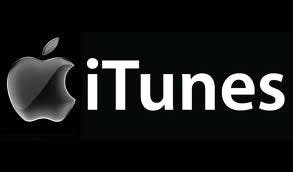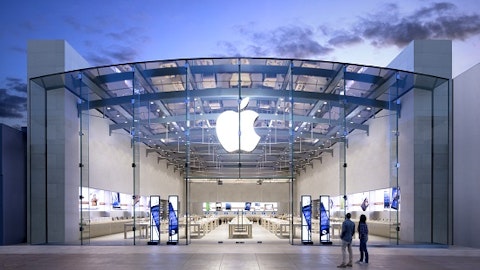Prior to Apple Inc. (NASDAQ:AAPL)’s iTunes Radio announcement on Monday, I had writtentwo pieces speculating about the potential ramifications for Pandora Media Inc (NYSE:P)’s business ahead of Apple’s rumored announcement.
As it turned out, the rumors proved stunningly accurate: Apple Inc. (NASDAQ:AAPL)’s iTunes Radio is practically a carbon copy of Pandora. Yet, something funny happened — Pandora Media Inc (NYSE:P)’s shares actually rallied on Monday. Bloomberg declared that “Apple iTunes Radio Seen as Little Threat to Pandora Service.”
Frankly, I have no idea how one would come to this conclusion. Apple Inc. (NASDAQ:AAPL)’s decision to create a carbon copy of Pandora should rob the service of many of its users, and at the same time, it exposes a deep flaw in Pandora Media Inc (NYSE:P)’s underlying business.
iTunes Radio: an embedded Pandora
Most of the disappointment with iTunes Radio seems to come from the fact that Apple Inc. (NASDAQ:AAPL) failed to push the envelope. As The Street’s Rocco Pendola told CNN, iTunes Radio is a “Pandora Media Inc (NYSE:P) knockoff.”
Like Pandora, iTunes Radio will allow users to listen to streaming music for free on their desktops and mobile phones. Playlists are generated based off an original artist or song, and users will be allowed a limited number of song skips. AppleInsider, comparing iTunes Radio to Pandora, said it has “virtually identical” function and performance.
But there’s one thing iTunes Radio has that Pandora Media Inc (NYSE:P) can’t match: deep iOS integration. For example, iTunes Radio can be accessed through Siri. Further, it is (as the name implies) built directly into iTunes — an application pre-loaded on all iDevices. Even more, it takes a user’s iTunes library into account when picking songs.
I’m sure some Apple Inc. (NASDAQ:AAPL) users will stick with Pandora out of familiarity (particularly if they are Pandora One subscribers). But for the vast majority? What reason do they have to stay?
You don’t need two Internet radio apps with identical functionality. They offer the same music in basically the same way. It would be the equivalent of someone buying cable from both Comcast Corporation (NASDAQ:CMCSA) and Time Warner Cable Inc (NYSE:TWC) — there’s simply no need.
In addition to iTunes Radio, Apple Inc. (NASDAQ:AAPL) is also including a built-in flashlight app in the next version of iOS. Referring to this feature, TechCrunch remarked that Apple had “mass-exterminated every flashlight app.”
Why does this logic hold for flashlights, but not Internet radio?
But not everyone uses an Apple device
Of course, iTunes Radio has a very limited audience — people with iTunes. That is to say, a user of Google Inc (NASDAQ:GOOG)’s Android (or Windows Phone or Research In Motion Ltd (NASDAQ:BBRY)) couldn’t make the switch to Pandora Media Inc (NYSE:P) even if they wanted to.
This clearly must be considered, given that Apple Inc. (NASDAQ:AAPL)’s smartphone market share in the US is only about 41%.
However, as Apple’s CEO Tim Cook is keen to point out, users are much more engaged when it comes to his company’s devices. In reality, Pandora’s mobile user base might be made up of a disproportionate number of iOS users (to my knowledge, Pandora does not disclose a breakdown of these numbers).
Nevertheless, iTunes Radio can’t rob Pandora Media Inc (NYSE:P) of every single one of its users — it isn’t possible given iTunes’ limited availability.
But here’s the other way in which iTunes Radio hurts Pandora: it demonstrates that the market has practically no barriers to entry.
Google Inc (NASDAQ:GOOG) launched its own streaming music service last month, Google Music All Access. It isn’t free — users must pay a subscription to get access — and it functions more like Spotify than Pandora, so it’s far from a direct threat.
But if Google wanted to add free radio functionality, what’s stopping it? Frankly, Google might never bother — it really isn’t in the company’s interests. Unlike Apple Inc. (NASDAQ:AAPL), Google Inc (NASDAQ:GOOG) doesn’t rely on iTunes to keep its customers bound to its ecosystem.
But if Pandora Media Inc (NYSE:P) ever demonstrated that there’s money to made when it comes to Internet radio, there’s seemingly nothing to prevent Google from entering the space. Warren Buffett is known for favoring companies with wide-moat business models — Pandora certainly isn’t one.
Pandora as an investment
As it stands, Pandora isn’t a profitable company. Last quarter, Pandora posted an adjusted loss per share of $0.10 (unadjusted $0.16). Investors appear to betting on the future, hoping that the company will eventually be able to monetize its ever increasing base of listeners.
But Pandora doesn’t own its content — it just distributes it. Other than name recognition, it is more or less powerless in the face of an ever increasing number of competitors.
And chief among those competitors is Apple Inc. (NASDAQ:AAPL)’s iTunes Radio. With its deep iTunes integration, Apple’s Pandora knock-off has the potential to drive away many (if not most) of Pandora Media Inc (NYSE:P)’s Apple product-using listeners.
So I ask the reader: Imagine an unprofitable company. Its business has seemingly no barriers to entry. It’s reliant on other companies to distribute its product, and some of these companies are moving to compete with it directly. Does that sound like a solid investment?
Joe Kurtz has no position in any stocks mentioned. The Motley Fool recommends Apple and Google. The Motley Fool owns shares of Apple and Google.
The article Apple’s iTunes Radio Announcement Couldn’t Have Been Worse for Pandora originally appeared on Fool.com.
Copyright © 1995 – 2013 The Motley Fool, LLC. All rights reserved. The Motley Fool has a disclosure policy.






